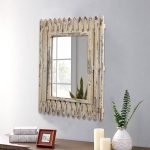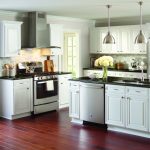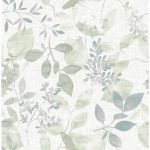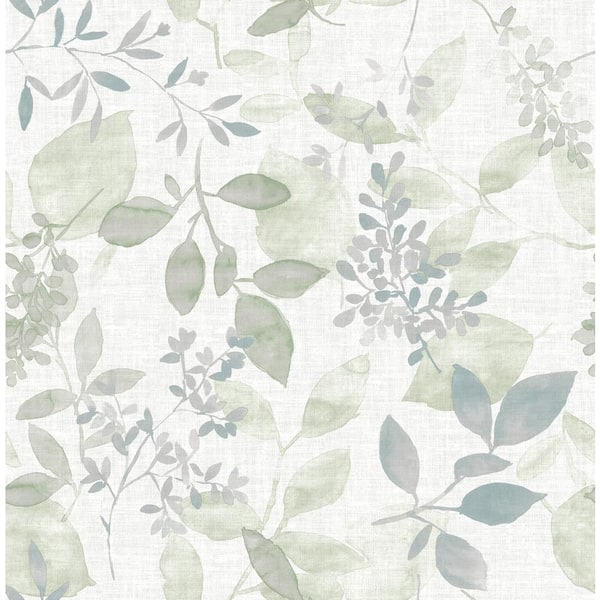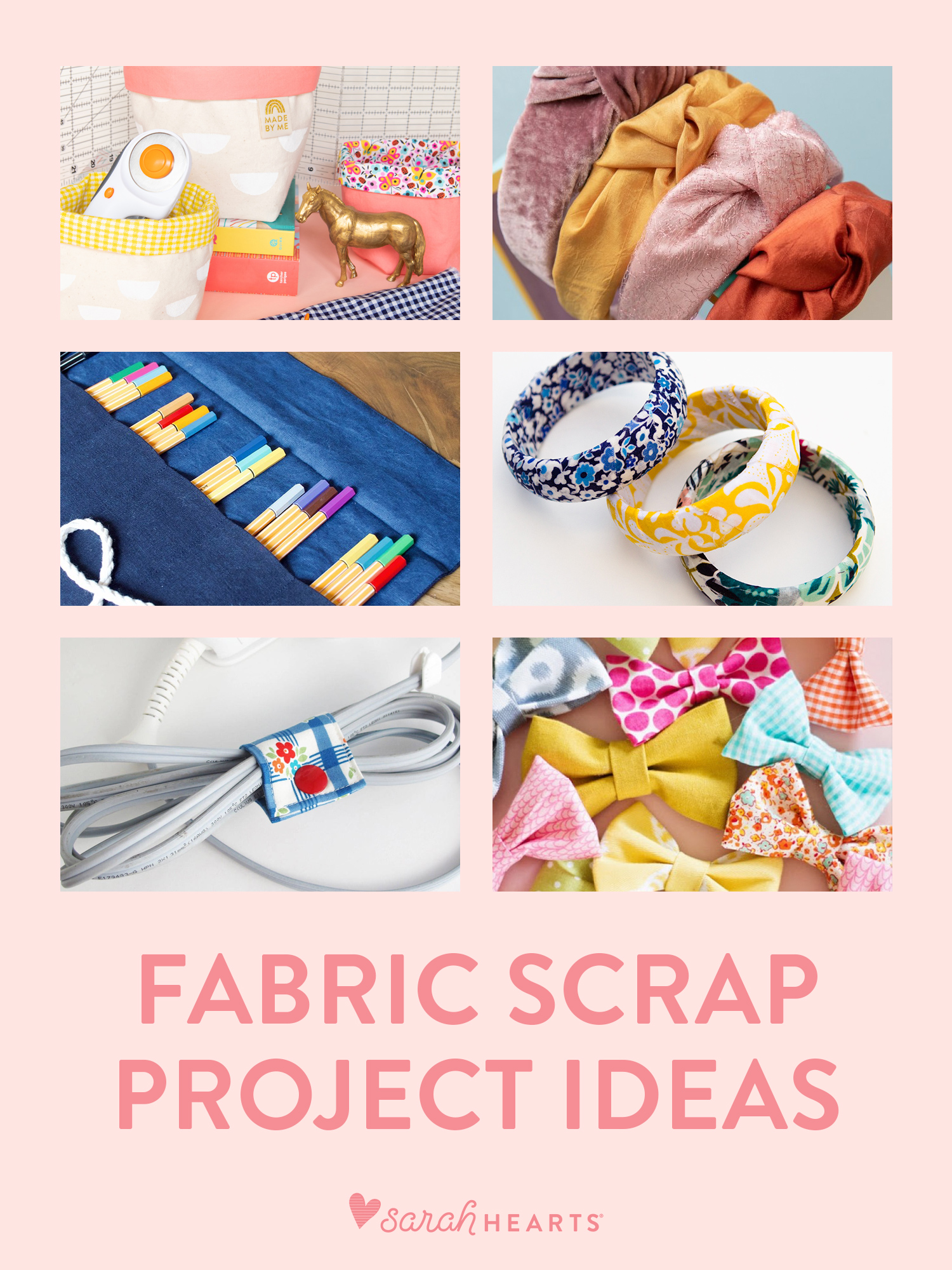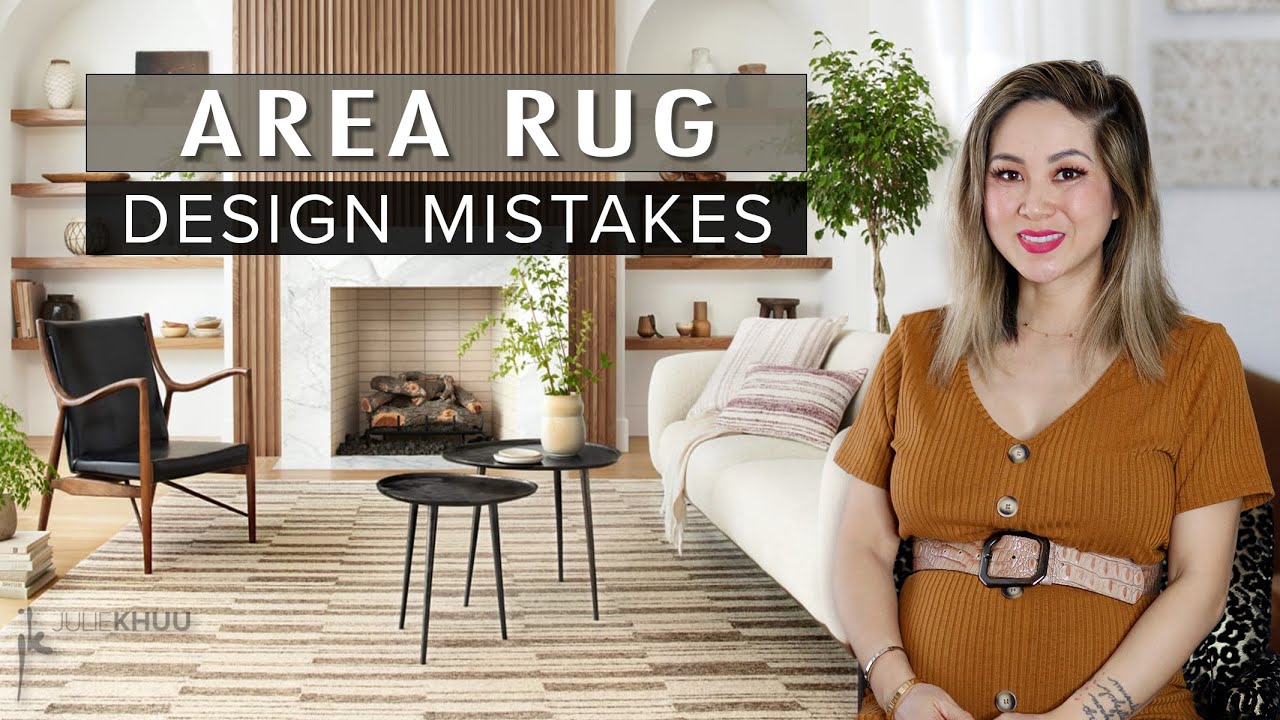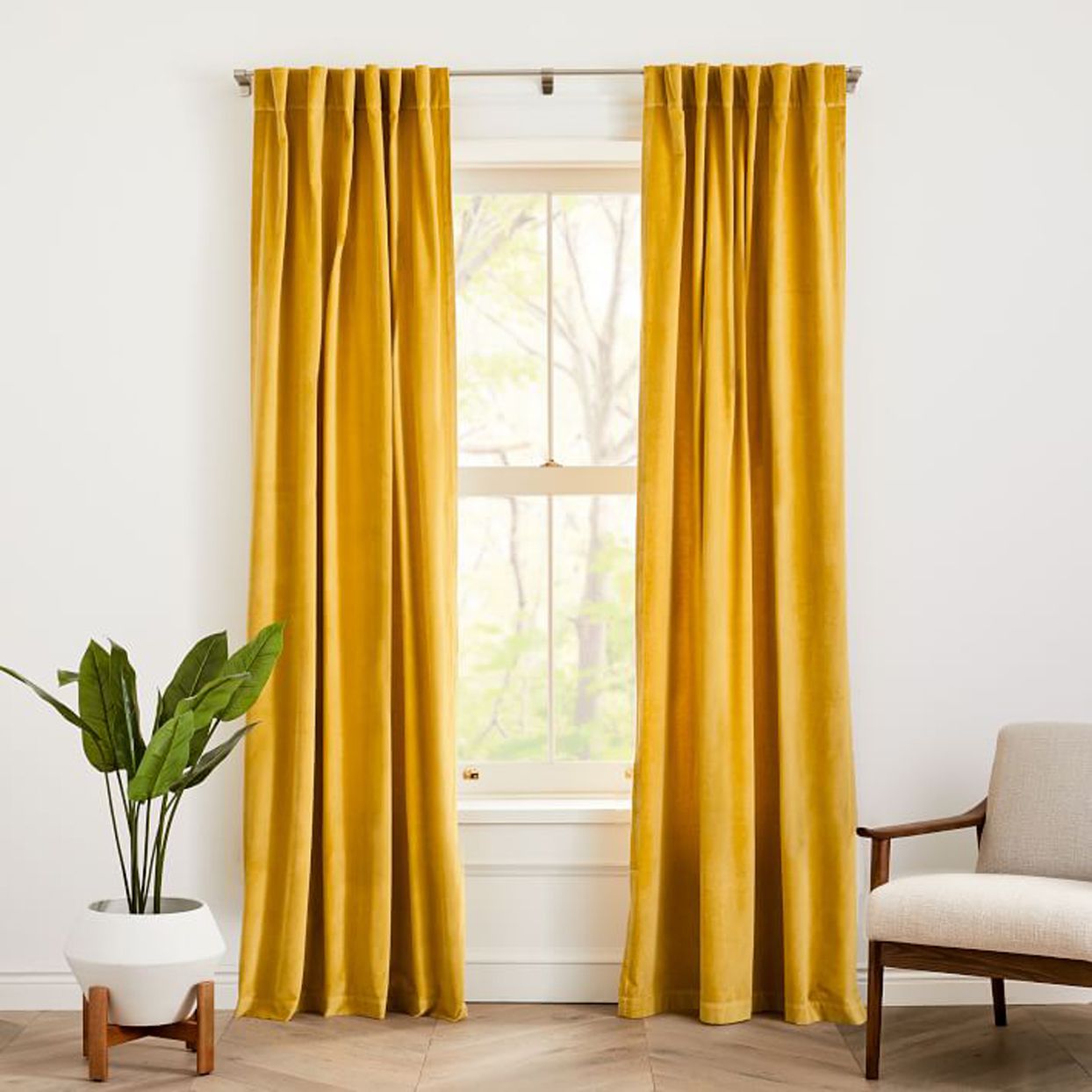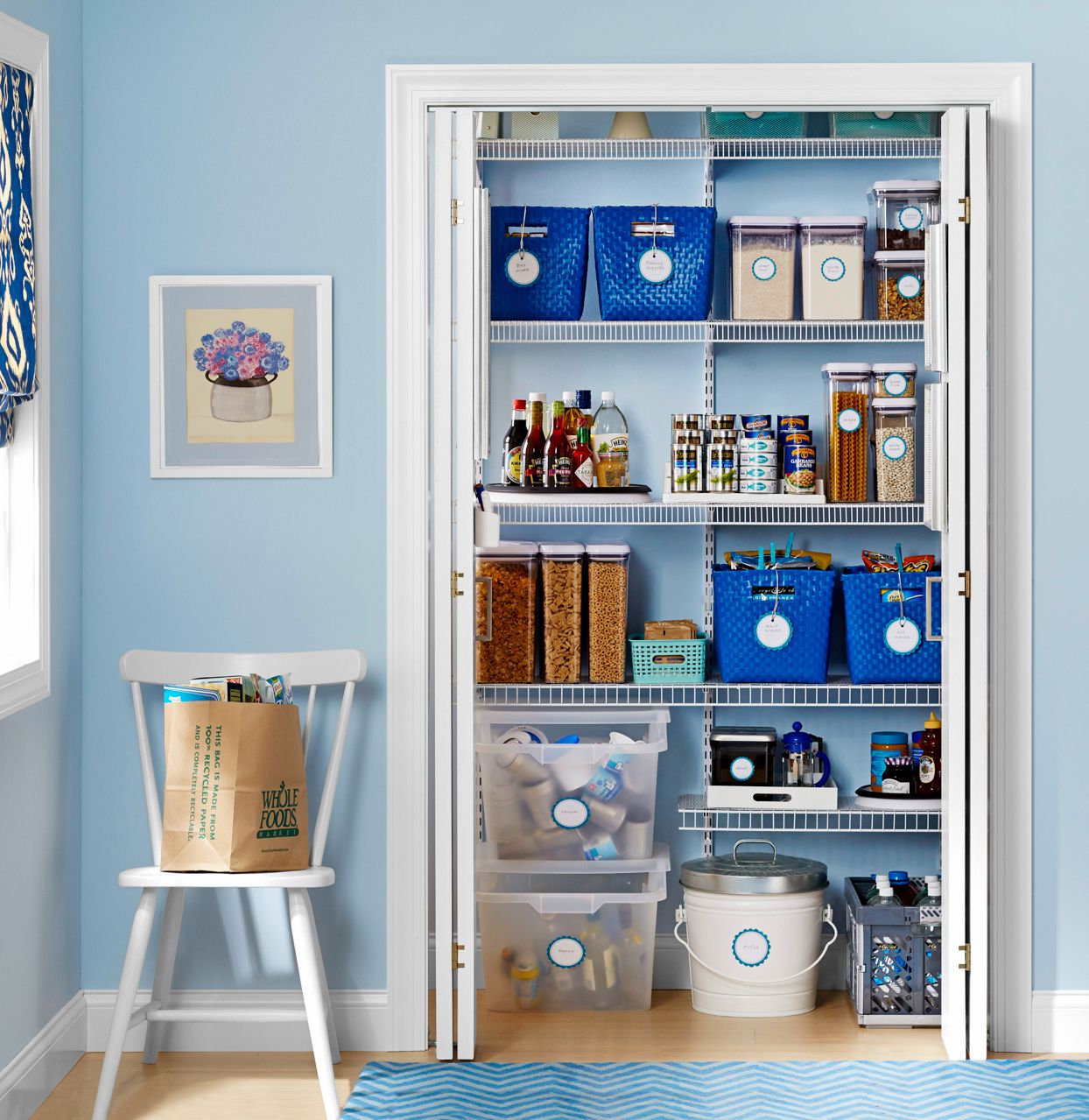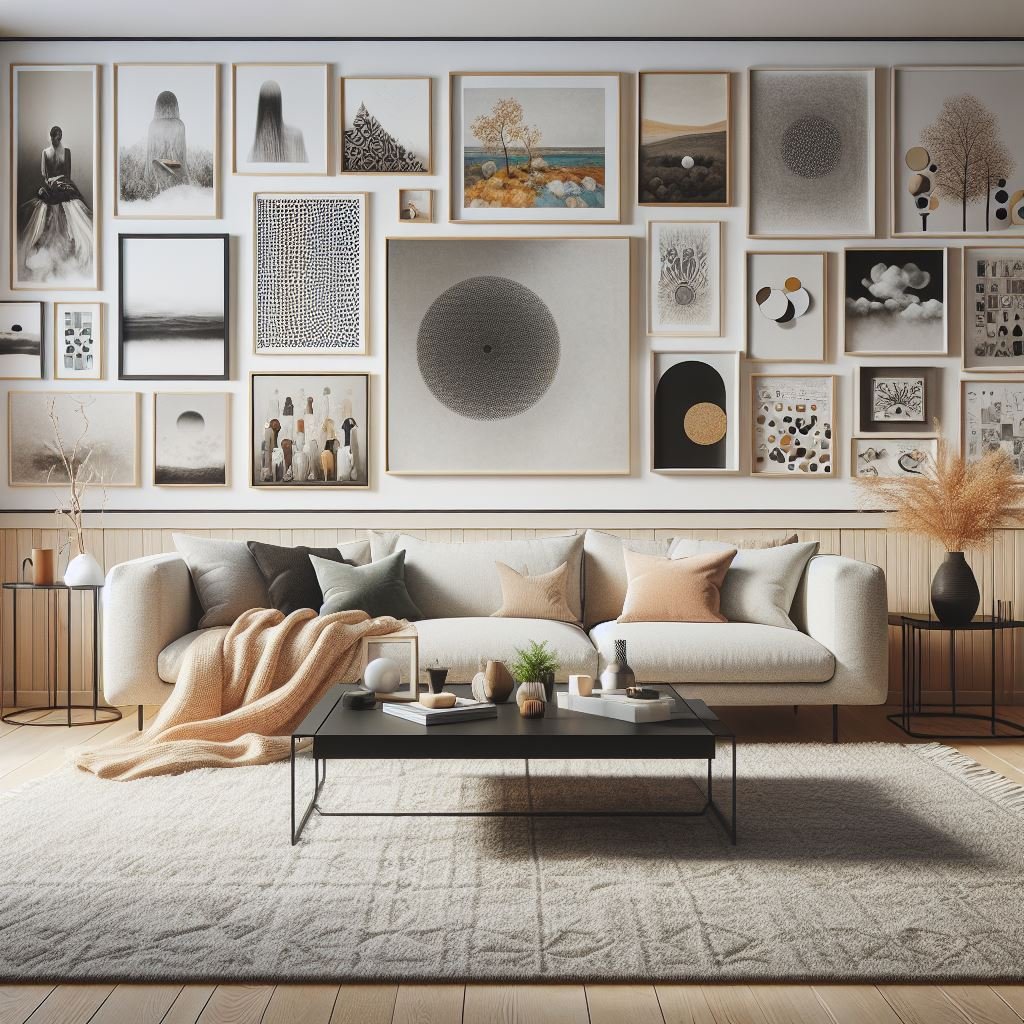
Create a stunning gallery wall layout ideas with these inspiring creative tips. Learn how to curate the perfect collection that elevates your space.
Create a stunning gallery wall by mixing different frame sizes and styles. Use a cohesive color palette for a polished look.
Gallery walls can transform any space, adding personality and flair to your home. By thoughtfully arranging artwork, photos, and decorative pieces, you can make a striking visual impact. Start with a theme or color scheme to ensure cohesion. Mix and match different frame styles and sizes for interest and depth.
Lay out your design on the floor before hanging to perfect the arrangement. Use templates or painter’s tape to map out the wall. Consider including other elements like mirrors or shelves for added dimension. With creativity and planning, your gallery wall will become a captivating focal point in your space.
Choosing The Right Wall
Creating a stunning gallery wall begins with choosing the perfect wall. The right wall sets the tone for your artwork. Consider various factors to ensure your gallery wall becomes a focal point in your space.
Assessing Space
Assess the available space before hanging artwork. Measure the wall’s height and width. Ensure your chosen wall has enough room for your gallery layout. Avoid overcrowding by selecting a wall that offers balance.
| Wall Type | Ideal For |
|---|---|
| Living Room Wall | Family photos, large artwork |
| Hallway Wall | Small frames, cohesive themes |
| Bedroom Wall | Personal artwork, calming images |
Highlighting Focal Points
Choose a wall that naturally draws attention. Highlight focal points like a fireplace, TV, or bed. A central wall in the living room is ideal. Focal points guide the eye and enhance the gallery’s impact.
- Above Furniture: Position artwork above couches or consoles.
- Blank Walls: Utilize large, empty walls for a dramatic effect.
- Entryways: Create a welcoming vibe with curated pieces.
Ensure your gallery wall complements the room’s existing decor. Select a wall that enhances your space’s overall aesthetic.
Selecting Your Theme
Choosing the right theme for your gallery wall is crucial. It sets the tone and mood of your space. Your theme reflects your personality and style. Let’s dive into some key aspects to consider.
Color Coordination
Color coordination brings harmony to your gallery wall. Select colors that complement your room. Use a color wheel for guidance. Pick a dominant color and two to three accent colors.
- Monochromatic: Different shades of one color.
- Analogous: Colors next to each other on the color wheel.
- Complementary: Colors opposite each other on the color wheel.
Use monochromatic for a subtle look. Choose analogous for a balanced feel. Opt for complementary to make your wall pop.
Stylistic Consistency
Stylistic consistency ensures a cohesive gallery wall. Stick to one style for a unified look. Use similar frames, mats, and art styles.
| Style | Description |
|---|---|
| Modern | Sleek frames and abstract art. |
| Vintage | Ornate frames and old photos. |
| Bohemian | Eclectic frames and colorful art. |
Modern style suits minimalist spaces. Vintage style adds charm and character. Bohemian style brings vibrancy and creativity.
Incorporate items that reflect your chosen style. This will elevate your gallery wall.
Mixing Art And Photography
Creating a stunning gallery wall is an art. Mixing art and photography can elevate your space to a new level. The combination of different styles and textures can make your wall unique and interesting. This mix can tell a story and reflect your personality.
Balancing Visuals
Balance is key when mixing art and photography. Too many photos can make the wall look cluttered. Too many art pieces can overwhelm the space. Aim for an even mix. For example:
- Two photos next to one art piece
- Alternate photos and art pieces
Use frames of different sizes and colors. This adds depth and dimension to your gallery wall.
Creating Contrast
Contrast makes your gallery wall stand out. Pair black and white photos with colorful art pieces. This creates a striking visual effect. You can also play with textures:
| Element | Effect |
|---|---|
| Glossy Photos | Adds shine and light |
| Matte Paintings | Gives a soft, smooth look |
Mix different art styles. Pair modern art with vintage photos. This creates a diverse and engaging gallery wall.
Incorporating Different Frames
Adding variety to your gallery wall can make it pop. Using different frames is a key to this. It introduces texture, color, and dimension. Here are some ideas to help you incorporate different frames effectively.
Frame Styles
Choosing the right frame styles can elevate your gallery wall. Here are some options:
- Classic Wooden Frames: These add warmth and a timeless feel.
- Metallic Frames: Perfect for a modern, sleek look.
- Vintage Frames: They bring character and a nostalgic vibe.
- Minimalistic Frames: Best for a clean and simple design.
Frame Sizes
Using various frame sizes adds visual interest. It helps to create a balanced and dynamic gallery wall. Here are some tips:
- Small Frames: Ideal for detailed artwork or photos.
- Medium Frames: Great for showcasing portraits or illustrations.
- Large Frames: Best for bold statements and large prints.
Combining different frame styles and sizes can create a stunning gallery wall. It allows you to showcase your unique taste and personality.
Creating A Layout Template
Designing a gallery wall can feel overwhelming. Creating a layout template helps simplify the process. Using templates ensures a cohesive and visually appealing wall. Let’s explore some methods to create your layout template.
Paper Cutouts
Paper cutouts are a simple way to plan your gallery wall. First, trace each frame on paper. Then, cut out the traced shapes. Use painter’s tape to position the cutouts on the wall. This gives a preview of your layout without making holes.
- Trace frames on paper.
- Cut out the shapes.
- Use tape to place cutouts on the wall.
Adjust the cutouts until you find the perfect arrangement. This method is great for visualizing the final look.
Digital Mockups
Digital mockups offer a high-tech way to plan your gallery wall. Use design software to create a virtual layout. Photoshop and Canva are popular choices. These tools allow you to resize and move images easily.
- Take photos of your frames.
- Upload photos to design software.
- Arrange the photos on a digital canvas.
This method saves time and avoids physical rearrangement. You can also experiment with different styles and colors.
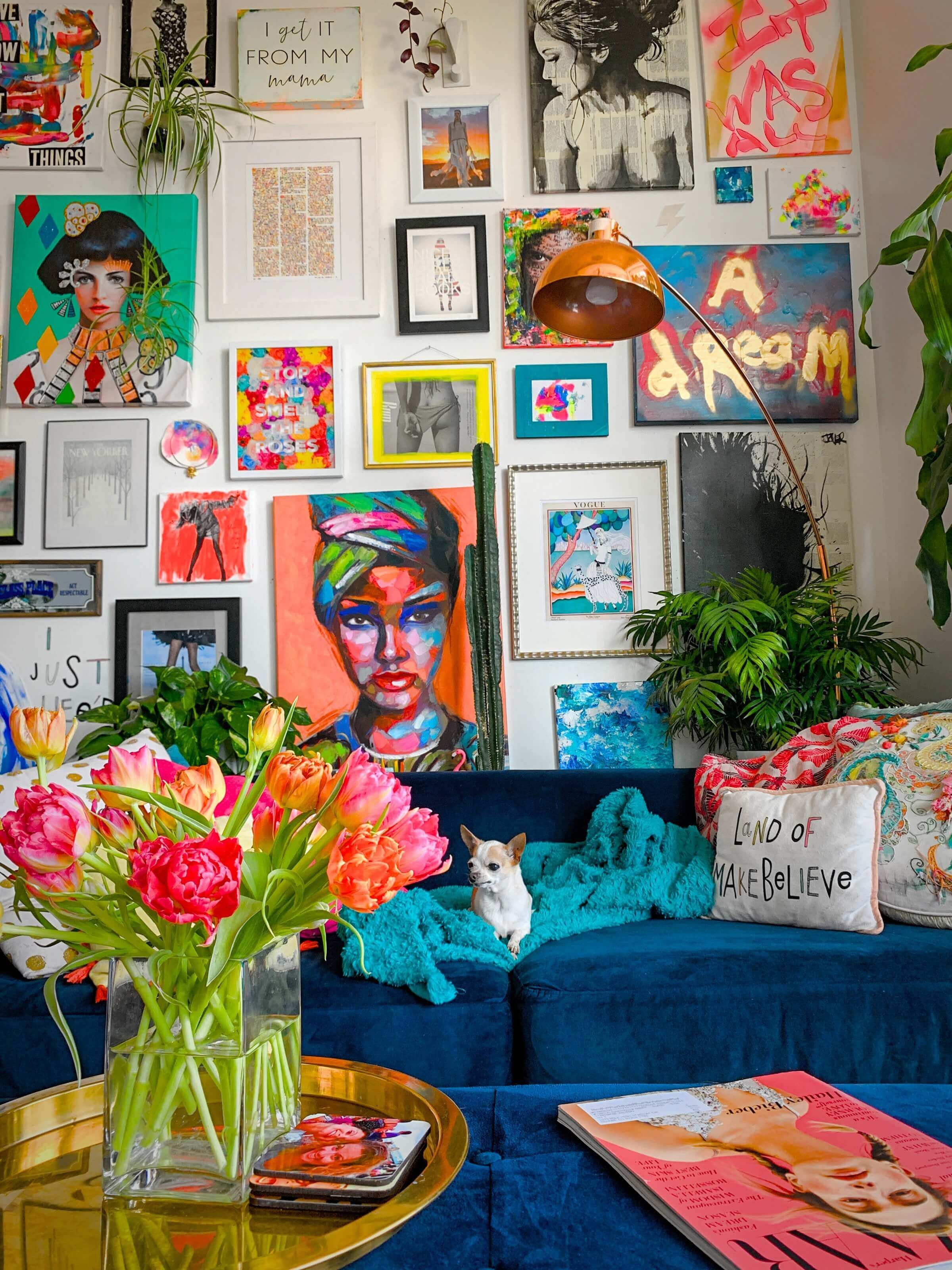
Credit: www.julieannrachelle.com
Using Shelves And Ledges
Transform your walls with creative shelf and ledge ideas. These can turn any room into a stylish gallery. Shelves and ledges offer flexibility and functionality. They allow you to display art, photos, and decor with ease.
Floating Shelves
Floating shelves provide a sleek, modern look. They appear to float without visible supports. This creates a clean and minimalist aesthetic. Use floating shelves to display framed photos, small plants, or art pieces.
Floating shelves come in various sizes and materials. Choose wood, metal, or glass to match your decor. Arrange them in a straight line for a uniform look. Or, stagger them for a dynamic and interesting display.
| Material | Style | Best Use |
|---|---|---|
| Wood | Rustic or Modern | Photos, Art |
| Metal | Industrial | Books, Plants |
| Glass | Contemporary | Decor Items |
Layered Ledges
Layered ledges offer depth and dimension. They create a multi-layered effect on your wall. This is perfect for displaying a mix of items. Use different heights and lengths to create visual interest.
Layered ledges can hold a variety of objects. Place books, framed art, and decorative items on them. Mix and match different textures and colors. This adds personality and charm to your space.
- Choose ledges in different widths and heights.
- Layer smaller ledges in front of larger ones.
- Combine different materials for a unique look.
To maintain a balanced look, avoid overcrowding the ledges. Leave some space between each item. This ensures that each piece stands out and gets noticed.
Adding Personal Touches
Adding personal touches to your gallery wall makes your space unique. It reflects your style and personality. Here are some ideas to help you get started.
Handmade Art
Incorporate handmade art to bring warmth to your gallery wall. You can use:
- Paintings or sketches you created.
- Craft projects from your kids.
- Custom embroidery or cross-stitch.
Handmade pieces add a personal and creative flair. They showcase your talents and hobbies. Your guests will admire these unique additions.
Family Photos
Family photos create a sense of history and connection. Use a mix of:
- Vintage photos of ancestors.
- Recent snapshots of family events.
- Black and white images for a classic look.
Arrange the photos in a structured layout. You can use frames of different sizes. This gives a dynamic and engaging look. Family photos make your gallery wall truly special.
| Type | Examples |
|---|---|
| Handmade Art | Paintings, sketches, embroidery |
| Family Photos | Vintage photos, event snapshots |
Your gallery wall is a reflection of your life. By adding personal touches, you ensure it stands out and tells your story.

Credit: gallerythane.com
Playing With Dimensions
Creating a stunning gallery wall involves more than just hanging pictures. By playing with dimensions, you can add depth and interest to your space. This approach makes your gallery wall stand out and become a conversation starter.
Depth Variations
Depth variations create a multi-layered look. Use frames of different thicknesses and sizes. Mix larger frames with smaller ones. Position some frames closer to the wall and others slightly raised. This adds visual intrigue and makes the wall feel dynamic.
Consider using floating shelves. Place objects on these shelves to add depth. Vary the heights and depths of the shelves for more interest. This technique keeps the eye moving and engaged.
3d Elements
3D elements make your gallery wall pop. Add objects like sculptures, wall planters, or shadow boxes. These items break the flat surface and create a tactile experience. Choose pieces that complement your overall theme.
Incorporate textiles for a soft touch. Hang woven wall hangings or fabric art. These elements add texture and warmth to your gallery wall. They also provide a unique contrast to framed pictures.
| Element | Effect |
|---|---|
| Thick Frames | Adds depth and dimension |
| Floating Shelves | Creates layered look |
| 3D Objects | Breaks flat surface |
| Textiles | Adds texture and warmth |
Using depth variations and 3D elements, your gallery wall becomes more engaging. Each piece will have its own spotlight while contributing to the overall aesthetic.
Incorporating Mirrors
Incorporating mirrors into your gallery wall can transform your space. Mirrors add depth and reflect light. They create an illusion of a larger room. They also add a touch of elegance and style.
Reflective Surfaces
Reflective surfaces can brighten your room. They bounce light around. This makes your space feel more open. Use mirrors with different frames. This adds variety and interest. A gold or silver frame can add a touch of luxury.
| Mirror Type | Frame Material | Best Location |
|---|---|---|
| Round Mirror | Wood | Living Room |
| Square Mirror | Metal | Bedroom |
| Oval Mirror | Glass | Hallway |
Mirror Arrangements
You can arrange mirrors in many ways. Create a focal point with a large mirror. Surround it with smaller pieces. This draws attention and adds balance.
- Symmetrical Layout: Place mirrors evenly on both sides of a large frame.
- Asymmetrical Layout: Mix different sizes and shapes for a dynamic look.
- Grid Layout: Arrange mirrors in a neat grid for a modern feel.
Mirrors can also be mixed with art pieces. This combination adds texture and layers. It makes your gallery wall unique and personal.
Using Unconventional Materials
Transform your space by using unconventional materials for your gallery wall. This approach adds texture, color, and a unique touch. Dive into ideas that go beyond traditional framed photos and artworks.
Textile Art
Textile art brings warmth and character to any room. Consider hanging woven wall hangings, macramé pieces, or even quilt patches. These add depth and texture to your gallery wall.
- Woven Wall Hangings: Create a cozy and inviting space.
- Macramé Pieces: Perfect for a boho-chic vibe.
- Quilt Patches: Add a touch of nostalgia and comfort.
Mix and match different textile pieces for an eclectic look. Arrange them in a balanced layout to maintain harmony.
Natural Elements
Incorporating natural elements can make your gallery wall feel grounded. Use items like driftwood, dried flowers, and stones.
| Element | Benefit |
|---|---|
| Driftwood | Adds a rustic, earthy feel. |
| Dried Flowers | Brings a touch of nature indoors. |
| Stones | Provides a grounding, calming effect. |
Combine these elements with framed artworks for a balanced look. Use shadow boxes or floating frames to showcase the natural items.
Explore these unconventional materials to create a stunning gallery wall. Elevate your space with unique textures and elements.
Balancing Symmetry And Asymmetry
Creating a stunning gallery wall can transform any space. Balancing symmetry and asymmetry adds visual interest. Symmetry brings order, while asymmetry adds excitement. Let’s explore two popular layout ideas.
Grid Layouts
A grid layout involves arranging frames in a neat, orderly fashion. This layout uses equal spacing between frames, creating a uniform look. It works well for formal spaces, like living rooms or offices.
Steps to create a grid layout:
- Measure the wall area.
- Choose frames of the same size.
- Arrange frames in rows and columns.
- Ensure equal spacing between each frame.
This layout brings a sense of calm and order. It is ideal for showcasing a series of related artworks or photos.
Organic Arrangements
An organic arrangement offers more freedom and creativity. This layout does not follow strict rules. It allows for different frame sizes and shapes.
Steps to create an organic arrangement:
- Gather a variety of frames.
- Start with a central piece.
- Add frames around it in a loose pattern.
- Adjust spacing to create balance.
This layout brings a dynamic and playful feel. It works well in casual spaces, like bedrooms or hallways.
Choose frames of different materials and colors for added texture. This will make your gallery wall even more interesting.
Balancing symmetry and asymmetry in gallery wall layouts creates unique and engaging spaces. Whether you prefer a grid layout or an organic arrangement, the key is to create a visually pleasing display that reflects your style.
Lighting Considerations
Lighting plays a crucial role in showcasing your gallery wall. The right lighting can make your artwork pop and create a cozy atmosphere. Let’s dive into some lighting considerations that will help you elevate your space.
Ambient Lighting
Ambient lighting provides general illumination for the room. It sets the mood and ensures your gallery wall is visible at all times. Here are some tips for ambient lighting:
- Use ceiling lights or chandeliers to light up the whole room.
- Install dimmable lights to control the brightness.
- Choose warm light bulbs for a cozy feel.
Ambient lighting helps to create a balanced light level across the room. This ensures that your gallery wall is well-lit without harsh shadows.
Spotlights
Spotlights focus light on specific pieces of your gallery wall. They highlight artwork and bring attention to details. Consider these options for spotlights:
- Track lighting allows you to move the lights along a track.
- Recessed spotlights blend into the ceiling for a clean look.
- Picture lights attach directly above or below the artwork.
Spotlights can be adjusted to highlight different pieces. This flexibility allows you to change the focus as your gallery wall evolves.
Here’s a comparison table for different types of spotlights:
| Type | Pros | Cons |
|---|---|---|
| Track Lighting | Flexible, adjustable | May require professional installation |
| Recessed Spotlights | Clean look, modern | Fixed position |
| Picture Lights | Directly above artwork | Limited coverage |
Combining Different Art Forms
Creating a gallery wall is an exciting way to transform your space. Combining different art forms can make your gallery wall truly unique. Mix paintings, sculptures, prints, and drawings for a dynamic look.
Paintings And Sculptures
Mixing paintings and sculptures adds depth to your gallery wall. Paintings bring color and texture. Sculptures introduce a three-dimensional element.
- Choose paintings with vibrant colors and varied styles.
- Incorporate small sculptures that complement the paintings.
Arrange paintings at eye level. Place sculptures on shelves or small pedestals. This creates a balanced look.
Prints And Drawings
Prints and drawings can add detail and character to your gallery wall. Both art forms are versatile and easy to mix.
- Select prints with bold designs and vivid colors.
- Choose drawings with fine lines and intricate details.
Frame prints and drawings for a polished appearance. Group them in clusters for a cohesive look.
| Art Form | Key Features |
|---|---|
| Paintings | Colorful, textured, varied styles |
| Sculptures | Three-dimensional, depth, dynamic |
| Prints | Bold designs, vivid colors |
| Drawings | Fine lines, intricate details |
Combining different art forms on your gallery wall elevates your space. Enjoy the process of curating your unique collection.
Using Color Accents
Creating a stunning gallery wall can transform any room. Using color accents adds personality and charm. You can choose bold hues or subtle tones. Both options can elevate your space uniquely.
Bold Hues
Bold hues bring energy and excitement. Consider using deep reds, vibrant yellows, and electric blues. These colors make your gallery wall pop. They draw attention and create a focal point.
- Red: Adds warmth and passion.
- Yellow: Brings joy and positivity.
- Blue: Evokes calm and stability.
Pair these bold colors with black or white frames. This combination enhances the visual impact. You can also mix different frame styles. This adds texture and depth to your wall.
Subtle Tones
Subtle tones provide a calm and sophisticated look. Soft pastels and neutral shades work best here. Think of light pinks, gentle blues, and warm greys.
| Color | Emotion |
|---|---|
| Light Pink | Tranquility |
| Gentle Blue | Serenity |
| Warm Grey | Elegance |
Use matching frames for a cohesive look. This creates a harmonious feel. Subtle tones blend well with almost any decor. They add a touch of elegance to your space.
Whether you choose bold hues or subtle tones, color accents can elevate your gallery wall. Experiment with different combinations to find the perfect balance.
Experimenting With Textures
Creating a stunning gallery wall involves more than just photos and paintings. Textures add depth and interest to your space. Mixing matte and glossy finishes or using textured frames can make your gallery wall stand out. Let’s dive into these ideas.
Matte Vs. Glossy
Choosing between matte and glossy finishes can change the feel of your gallery wall. Matte frames give a soft, elegant look. They don’t reflect light and work well in bright rooms. Glossy frames, on the other hand, offer a shiny, modern vibe. They can make colors pop and add a touch of glamour.
Using both matte and glossy finishes can create a balanced, dynamic effect. For example, you can pair a glossy black frame with a matte white one. This contrast adds visual interest and keeps the eye moving.
Textured Frames
Textured frames bring a tactile element to your gallery wall. They can be wooden, metal, or even fabric-covered. Each type of texture adds a unique character.
Wooden frames offer a rustic, warm feel. Metal frames can look sleek and industrial. Fabric-covered frames introduce softness and can be matched with your decor. Mixing different textures can create a layered, rich look.
| Texture | Effect |
|---|---|
| Wooden Frames | Warm, rustic feel |
| Metal Frames | Sleek, industrial vibe |
| Fabric-Covered Frames | Soft, cozy touch |
- Wooden frames add warmth and a rustic charm.
- Metal frames bring a sleek, modern feel.
- Fabric frames introduce a cozy, soft touch.
Experimenting with textures can truly elevate your gallery wall. Mix and match different finishes and frames. This will create a stunning, dynamic display that captures everyone’s attention.
Incorporating Typography
Creating a stunning gallery wall can transform any space. One way to make it unique is by incorporating typography. Words can inspire, motivate, and elevate your gallery wall. Here are some ideas to help you incorporate typography into your gallery wall layout.
Inspirational Quotes
Inspirational quotes can bring positivity to your space. Choose quotes that resonate with you. These quotes can be about love, life, or success. Make sure the quotes are short and impactful. Use a mix of different fonts and sizes to add interest.
- Pick quotes that inspire you.
- Use different fonts and sizes.
- Mix with images and other art pieces.
Here is an example of how you can arrange your quotes:
| Top Row | Middle Row | Bottom Row |
|---|---|---|
| Image 1 | Quote 1 | Image 2 |
| Quote 2 | Image 3 | Quote 3 |
| Image 4 | Quote 4 | Image 5 |
Artistic Fonts
Using artistic fonts can add a unique touch to your gallery wall. Choose fonts that match the theme of your room. You can mix modern, classic, and whimsical fonts. This mix will create visual interest and keep the eye engaged.
- Choose fonts that complement each other.
- Mix modern, classic, and whimsical fonts.
- Ensure readability of all text.
Here’s a simple layout idea:
Combining these elements can create a stunning gallery wall. Typography adds a personal touch and makes your space unique.
Creating Seasonal Themes
Transform your gallery wall by embracing seasonal themes. This approach keeps your space fresh and vibrant year-round. Seasonal themes add a dynamic and engaging element to your decor. Rotate your wall art based on the time of year. This keeps your home feeling timely and welcoming.
Holiday Decor
Incorporate holiday decor into your gallery wall for festive flair. For Christmas, consider hanging framed holiday cards or vintage ornaments. Use wreaths or garlands to frame your art pieces.
- Christmas: Framed holiday cards and vintage ornaments.
- Halloween: Spooky prints and black-and-orange frames.
- Thanksgiving: Autumn leaves and harvest-themed artwork.
Switching out holiday-specific items keeps your gallery wall fresh. It also aligns it with the festive spirit.
Seasonal Colors
Choose seasonal colors to reflect the time of year. For spring, incorporate pastels like light blues and pinks. In summer, use vibrant colors like yellow and green.
| Season | Colors |
|---|---|
| Spring | Pastels: light blue, pink |
| Summer | Vibrant: yellow, green |
| Autumn | Earthy: brown, orange |
| Winter | Cool: white, silver |
Seasonal colors can be added through frames, mats, or the artwork itself. This simple change can make a big impact. It keeps your gallery wall in sync with the seasons.
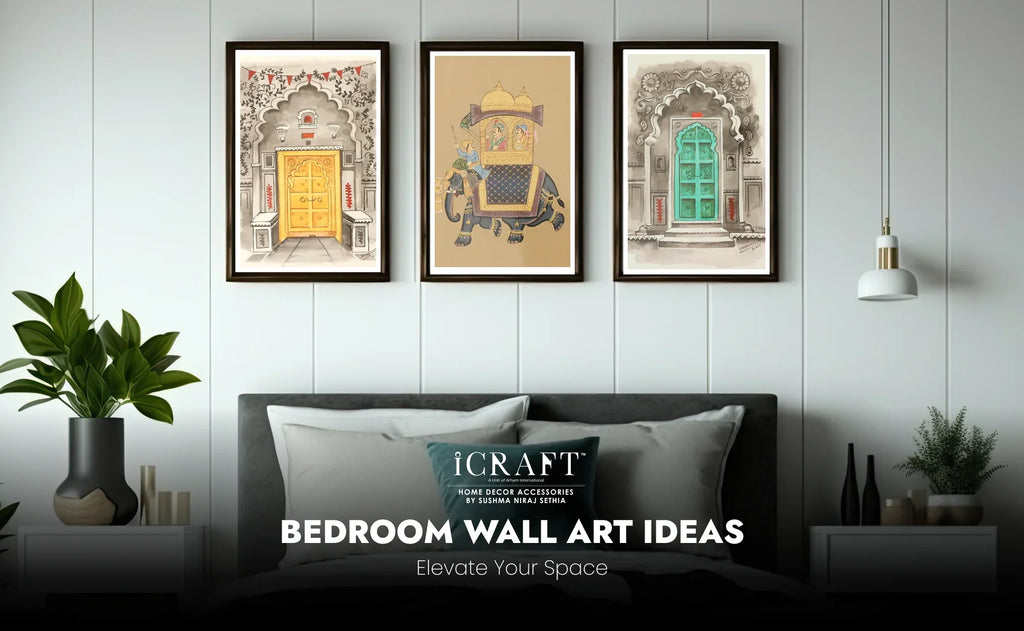
Credit: www.icrafthomedecor.com
Making Use Of Negative Space
Negative space is the empty space around your art pieces. Using negative space in your gallery wall design is crucial. It can make your wall look less cluttered and more appealing. Here are some ideas to make the best use of negative space.
Breathing Room
Ensuring your artwork has enough breathing room is key. This means leaving some areas of your wall blank. This technique highlights each piece individually. It also makes your wall look balanced.
Consider using a grid layout with equal spacing. This gives each piece its own spotlight. You can also use an asymmetrical layout for a modern look. Just make sure the spacing is consistent.
Strategic Gaps
Strategic gaps help create a cohesive look. Place your pieces in a way that guides the eye naturally. This can be achieved by using larger gaps between some pieces. Then, use smaller gaps for others.
Here’s a simple table to illustrate:
| Type of Art | Recommended Gap |
|---|---|
| Large Frames | 3-4 inches |
| Small Frames | 1-2 inches |
Pro Tip: Use painter’s tape to map out your layout on the wall. This helps visualize how the gaps will look.
Creating a stunning gallery wall is easy with these tips. Make use of negative space, and your wall will look amazing!
Curating A Cohesive Collection
Creating a stunning gallery wall requires a cohesive collection of art pieces. The right mix of artwork can transform any space into a visual masterpiece. Here, we’ll explore key strategies for curating a collection that will elevate your gallery wall.
Art Curation
To start, choose a theme for your gallery wall. Themes could be nature, abstract art, or family photos. A clear theme makes the wall feel unified.
Next, select pieces that match your chosen theme. Make sure the artwork has a common color palette. This helps create visual harmony. Mix different sizes and shapes to add interest. Don’t forget to include different types of art like paintings, photos, or prints.
| Theme | Art Type | Color Palette |
|---|---|---|
| Nature | Paintings, Photos | Green, Brown, Blue |
| Abstract | Prints, Sketches | Black, White, Red |
| Family | Photos, Drawings | Warm Tones |
Storytelling Through Art
Your gallery wall should tell a story. Each piece should contribute to the overall narrative. Start with a central piece that grabs attention. This could be a large painting or a special photo.
Then, arrange smaller pieces around it. Ensure each piece relates to the central theme. Think about the journey you want viewers to take. Use art to guide their eyes across the wall.
- Choose a central piece as a focal point.
- Arrange smaller pieces around the central one.
- Ensure each piece relates to the theme.
- Guide viewers’ eyes with your arrangement.
Maintaining Your Gallery Wall
Maintaining your gallery wall ensures it remains a stunning focal point. Proper care keeps your artwork and frames looking their best. Follow these tips to keep your gallery wall in pristine condition.
Cleaning Tips
Dust your gallery wall weekly. Use a soft, dry cloth to avoid scratches. For glass frames, use a glass cleaner sparingly. Spray the cleaner on a cloth, not the frame. This prevents moisture damage to the artwork.
Wipe wooden frames gently with a dry cloth. Avoid water or harsh chemicals. For metal frames, a damp cloth works well. Make sure to dry them immediately after cleaning. Avoid using too much pressure to prevent bending.
Frame Maintenance
Check frame corners for stability. Loose corners can damage your artwork. Tighten screws and nails if needed.
Inspect the back of the frames. Ensure the hanging hardware is secure. Replace any damaged hooks or wires. This prevents accidental falls.
If you notice discoloration, consider repainting or refinishing. For wooden frames, use a wood polish to maintain shine. Metal frames may need a touch-up with paint to avoid rust.
| Type of Frame | Cleaning Method |
|---|---|
| Glass | Glass cleaner on a cloth |
| Wood | Dry cloth, wood polish |
| Metal | Damp cloth, dry immediately |
Remember, regular maintenance keeps your gallery wall looking fresh. A well-maintained gallery wall enhances any space.
Frequently Asked Questions
What Is The Best Way To Arrange A Gallery Wall?
Arrange a gallery wall by planning your layout first. Use paper templates to visualize. Start with the central piece, then add surrounding items. Ensure spacing is even. Mix frame styles for variety.
How High Should A Gallery Wall Layout Be?
Hang the center of the gallery wall at eye level, around 57 to 60 inches from the floor.
How To Arrange 5 Pictures On A Wall?
Arrange 5 pictures symmetrically or asymmetrically. Use a grid or staggered pattern. Maintain equal spacing. Consider eye level placement. Use a level tool for precision.
How Do You Plan An Eclectic Gallery Wall?
To plan an eclectic gallery wall, choose a mix of art, photos, and objects. Arrange them in a balanced yet random layout. Use various frame styles and sizes. Consider color coordination and spacing. Test different layouts on the floor before hanging.
What Is A Gallery Wall Layout?
A gallery wall layout is an arrangement of art or photos on a wall.
How Do I Start A Gallery Wall?
Choose a focal point, then arrange frames around it.
What Frames Are Best For Gallery Walls?
Mix different sizes and styles for visual interest.
Can I Use Different Art Styles Together?
Yes, combining styles adds depth and character.
How Do I Choose A Color Scheme?
Match your wall art colors with your room’s decor.
What Is The Ideal Height For A Gallery Wall?
Center your pieces at eye level, around 57 inches.
Conclusion
Elevate your space with these stunning gallery wall layout ideas. Experiment with frames, colors, and arrangements. Create a personalized art display that reflects your style. Transform any room into a visual masterpiece. Start designing your gallery wall today and enjoy a beautifully curated space.

